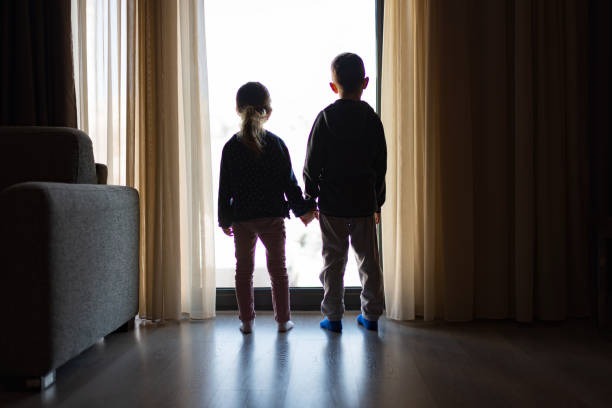Prioritizing the well-being of children after a tragedy
Through open communication, maintaining routines and stability, creating a safe environment, professional support, building resilience, and adult self-care, we can help children cope and rebuild their lives.
KIDS UP
2/5/20242 min read


After experiencing a tragedy like the one that is still being experienced in the central area of Chile with the forest fires, it is understandable that the priority of the adult world is to rebuild and recover what was lost. However, in the midst of the catastrophe, we are often not aware of what children are experiencing and how their mental and emotional health may be affected. It is important to attend to the different emergencies and at the same time prioritize the well-being of the little ones who have experienced a situation as difficult as this.
1. Open and honest communication
It is essential to establish open and honest communication with children after a tragedy. Explain to them what has happened in a clear and age-appropriate way, without hiding the seriousness of the situation but avoiding generating unnecessary fear. Allow them to express their feelings and questions, and give them the emotional support they need. Actively listen to and validate their emotions, showing them that you are there to help and protect them.
2. Maintain routines and stability
In times of crisis, routines and stability are especially important for children. Try to maintain daily routines as much as possible, such as meal and sleep schedules. This will provide them with a sense of security and normality in the midst of uncertainty. If changes need to be made to routines, explain clearly and in advance so they can adapt better.
3. Provide a safe environment
After a tragedy, it is essential to provide children with a safe and protective environment. Make sure they have a safe place to live and rest, where they feel protected. Eliminate or minimize stimuli that may remind them of the tragedy, such as images or constant news about the event. Encourage activities that promote calm and well-being, such as playing, reading or art.
4. Seek professional support
If you notice that your child has significant changes in her behavior or emotions after a tragedy, it is important to seek professional support. A psychologist or therapist specializing in childhood trauma can help children process their emotions and give them the tools necessary to overcome the situation. Don't hesitate to ask for help if you need it, since your child's emotional well-being is paramount.
5. Foster resilience and mutual support
Teach your children the importance of resilience, that is, the ability to adapt and recover in the face of adversity. Encourage them to express their emotions in healthy ways, find activities that bring them joy, and support each other. Encourage solidarity and empathy, showing them how they can help others who have also been affected by tragedy. This will give them a sense of purpose and strength.
6. Personal care for adults
It is important to remember that to take care of children's well-being, adults must also take care of themselves. Don't neglect your own mental and emotional health. Seek support from your social support network, practice activities that provide you with well-being, and allow yourself time to rest and recover. By taking care of yourself, you will be better able to care for and support your children.
In conclusion, after a tragedy like the forest fires in central Chile, it is essential to prioritize the well-being of children. Through open communication, maintaining routines and stability, creating a safe environment, professional support, building resilience, and adult self-care, we can help children cope and rebuild their lives. lives. Let's remember that your mental and emotional health is just as important as physical reconstruction.
